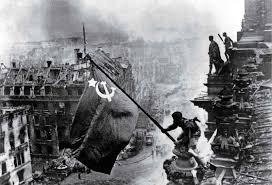Introduction
The Election Commission of India (ECI) initiated a Special Intensive Revision (SIR) of electoral rolls in Bihar starting June 25, 2025, ahead of the state’s assembly elections later that year. This exercise, the first of its kind since 2003, has sparked intense debate and controversy, with opposition parties, civil society, and activists alleging that it risks disenfranchising millions of genuine voters, particularly the poor, illiterate, landless, and migrant populations. The SIR requires voters not listed in the 2003 electoral roll to provide proof of citizenship and date/place of birth, using one of 11 specified documents, excluding widely held IDs like Aadhaar, voter ID, and ration cards. This has raised concerns about accessibility and fairness, especially in a state like Bihar, characterized by high poverty, low literacy, and significant migration.
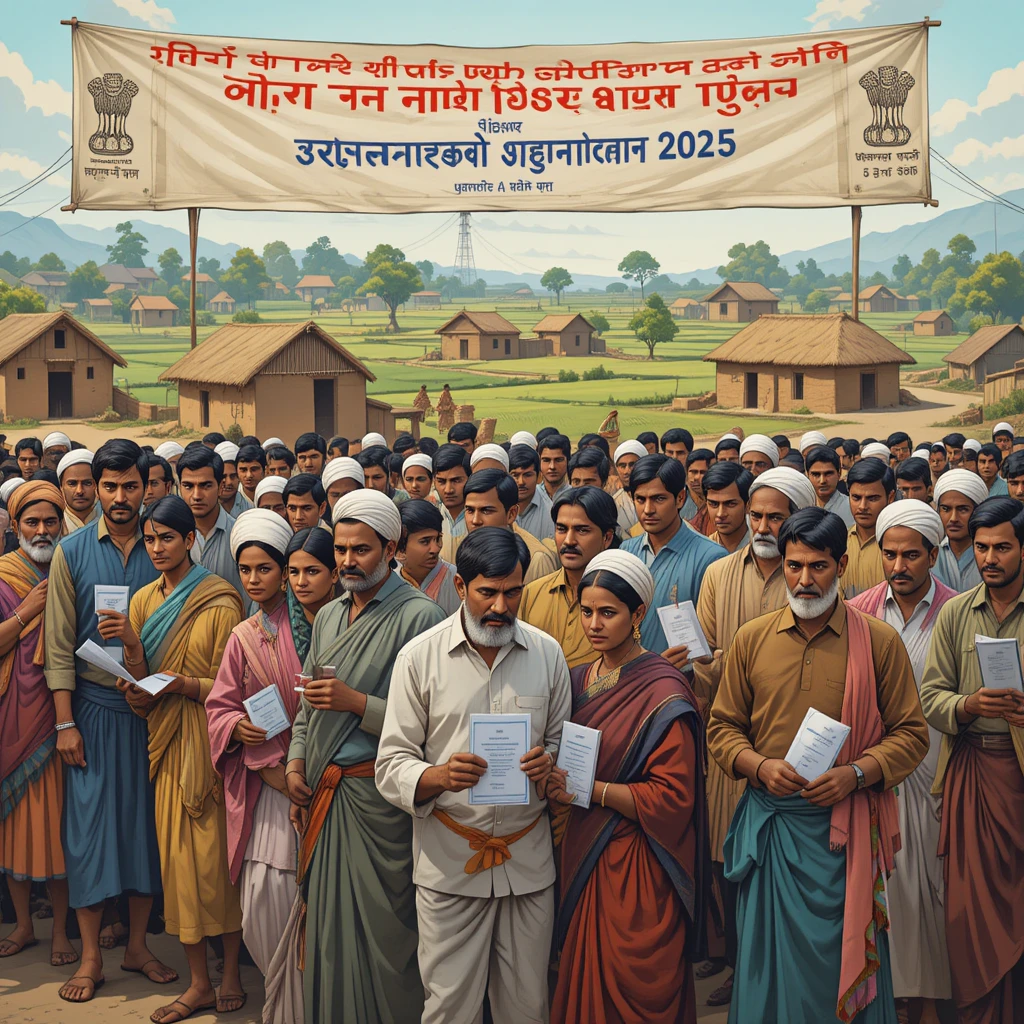
Table of Contents
Compounding these concerns are questions about the ECI’s independence, particularly after the BJP-led government’s ordinance in 2023 altered the selection process for the Chief Election Commissioner (CEC) and Election Commissioners (ECs), overriding a Supreme Court judgment. Additionally, the reported increase of approximately 76 lakh voters in Maharashtra within five to six months of the 2024 General Election has fueled suspicions of electoral roll manipulation, raising parallels with the Bihar SIR. This article delves into the mechanics of the SIR, its requirements, the ground realities, the ECI and BJP’s roles, and the broader implications for Indian democracy, drawing on available sources and critical analysis.
The Special Intensive Revision (SIR) in Bihar: Mechanics and Requirements
Background and Rationale
The ECI announced the SIR on June 24, 2025, citing the need to update Bihar’s electoral rolls to eliminate ineligible voters, including illegal immigrants, and address issues like rapid urbanization, migration, and non-reported deaths. Bihar, with 7.9 crore voters, is India’s second most populous state after Uttar Pradesh, making the integrity of its voter list critical for free and fair elections. The last intensive revision occurred in 2003-2004, and the ECI argued that demographic changes over two decades necessitated a thorough overhaul. The SIR aligns with Article 326 of the Constitution, which mandates that only Indian citizens above 18 years and ordinarily resident can vote.indiatoday.in
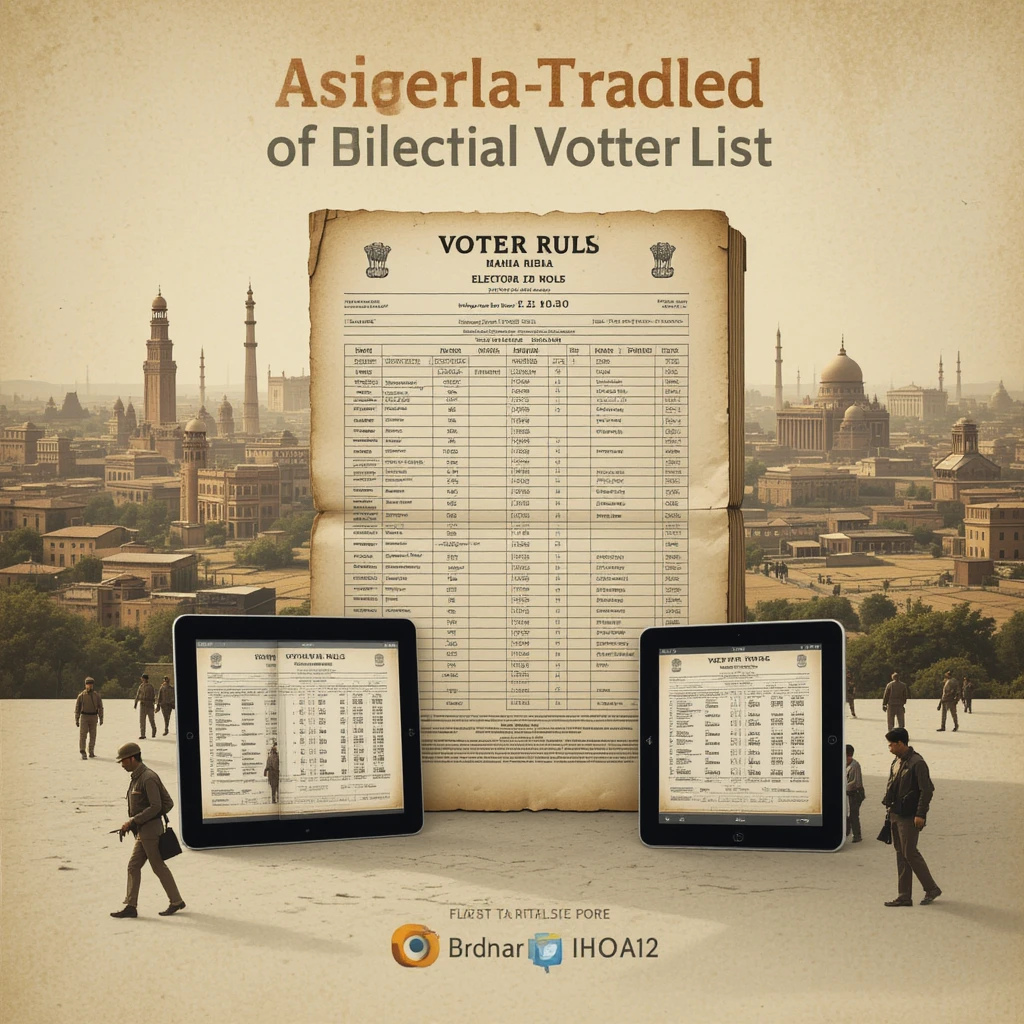
Unlike the annual Special Summary Revision (SSR), which corrects minor errors and adds new voters, the SIR is a de novo exercise, requiring fresh verification of all voters. The 2003 electoral roll serves as the base draft, meaning the approximately 4.96 crore voters listed then only need to submit an extract from that roll. However, the remaining 2.93 crore voters, added post-2003, must provide one of 11 specified documents to prove their date and place of birth, and, for those born after December 2, 2004, proof of their parents’ citizenship
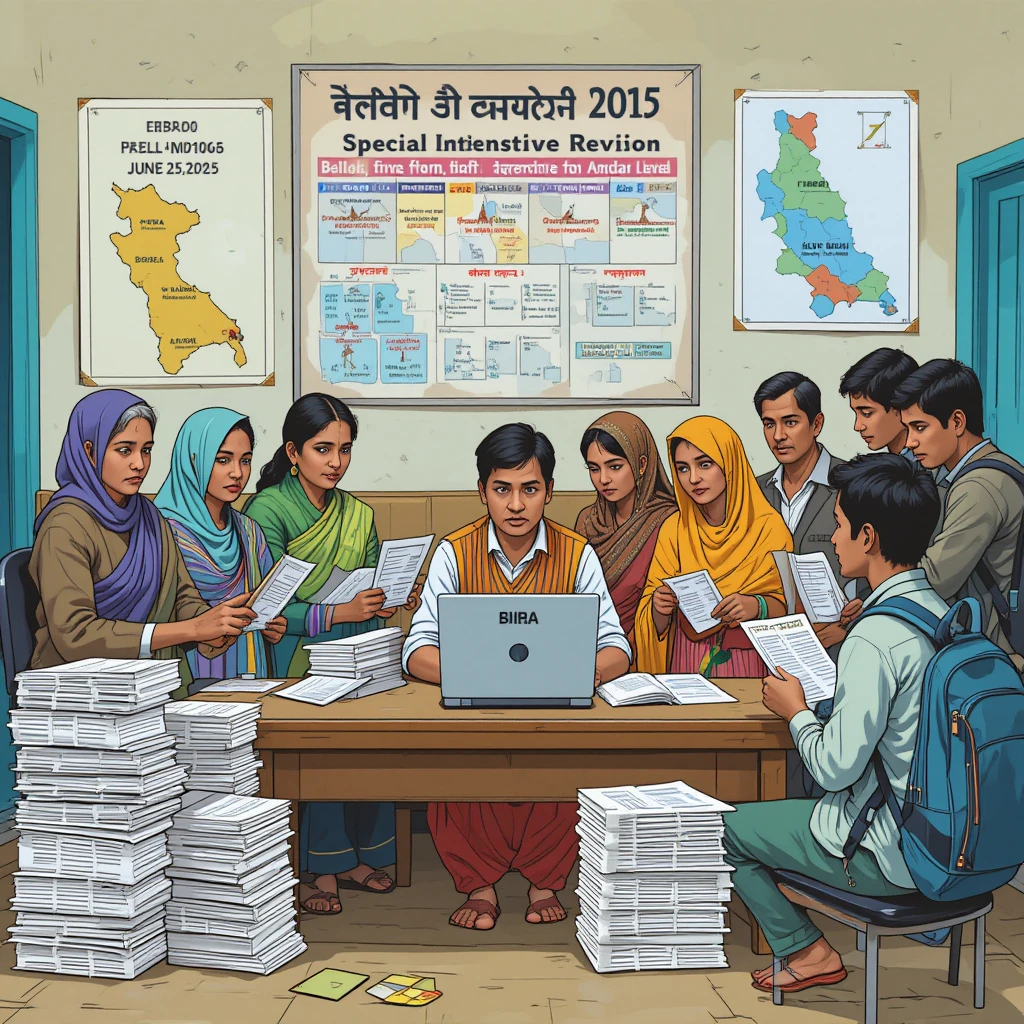
Documents Required
The ECI has specified 11 documents acceptable for the SIR, including:
- Birth certificate
- Passport
- Matriculation certificate
- Permanent residence certificate
- Government-issued identity card
- Pension payment order
- Caste certificate
- Scheduled Caste/Scheduled Tribe (SC/ST) certificate
- Other Backward Classes (OBC) certificate
- Forest Rights Act (FRA) titles
- Domicile certificate
Notably, widely available documents like Aadhaar, voter ID, ration cards, PAN cards, and MNREGA cards are excluded because they do not explicitly prove citizenship. The Supreme Court, during hearings on July 10, 2025, questioned this exclusion, suggesting that Aadhaar, voter ID, and ration cards be considered, given their widespread availability, especially among the poor. The ECI, however, maintained that citizenship verification is essential under Article 326, and Aadhaar explicitly states it is not proof of citizenship.indiatoday.intimesofindia.indiatimes.comnewsonair.gov.in
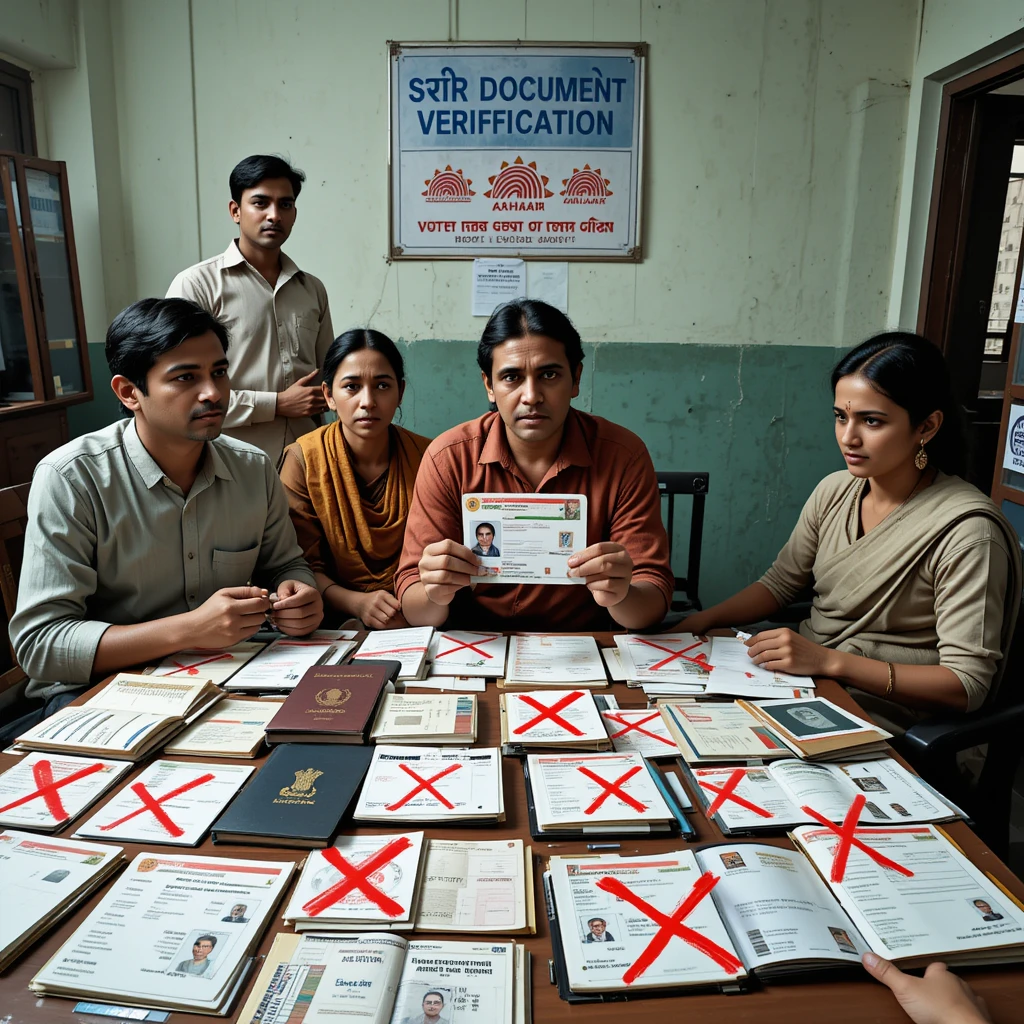
For voters born after December 2, 2004, the requirement to provide parental citizenship documents adds complexity, particularly in a state with historically low birth registration rates. The ECI has clarified that 60% of voters (those on the 2003 roll) are exempt from submitting additional documents, but the remaining 2.93 crore face significant hurdles, especially in rural areas and among marginalized communities.indiatoday.in
Implementation Process
The SIR, which runs from June 25 to September 30, 2025, involves a door-to-door verification by Booth Level Officers (BLOs). Approximately 77,895 BLOs, supported by 20,603 additional officers and 4 lakh volunteers, including government officials and NCC cadets, are tasked with distributing and collecting enumeration forms. These forms, pre-filled with voters’ names, addresses, and photographs, must be signed and returned with the required documents. Electoral Registration Officers (EROs) scrutinize submissions, conduct field inquiries if eligibility is doubted, and issue formal orders on inclusion or exclusion. Political parties’ Booth Level Agents (BLAs), including 52,689 from the BJP and 47,504 from the RJD, monitor the process to ensure transparency.ndtv.comindiatoday.in
As of July 6, 2025, the ECI reported that 1.69 crore (21.46%) of the 6.86 crore enumeration forms distributed had been collected, covering 87% of electors. Two additional BLO visits were planned to complete household coverage. The ECI has emphasized an “inclusion first” approach, with provisions for assisting vulnerable groups like the elderly and disabled, and has uploaded the 2003 voter list online to ease access for exempt voters.ndtv.comthehindu.com

Ground Realities: Challenges for Illiterate, Landless, and Rural Voters
Socioeconomic Context of Bihar
Bihar’s socioeconomic profile exacerbates the challenges of the SIR. The state has a literacy rate of approximately 61.8% (2011 Census), one of the lowest in India, with rural areas particularly affected. Over 84% of its population comprises Other Backward Classes (OBCs, 27%), Extremely Backward Classes (EBCs, 36%), Scheduled Castes (SCs, 20%), and Scheduled Tribes (STs, 1.6%), many of whom are landless, poor, or migrant laborers. Low document ownership, limited internet access, and bureaucratic complexities make compliance with the SIR’s requirements daunting for these groups.business-standard.com
Documentation Barriers
The exclusion of Aadhaar, ration cards, and voter IDs—documents widely held by Bihar’s poor—has been a major point of contention. Aadhaar, covering 99% of India’s adult population as of October 2024, is the most accessible ID, often used for welfare schemes. Yet, the ECI’s insistence on documents like birth certificates or passports, which are less common in rural Bihar, disproportionately affects the marginalized. For instance, a Dainik Bhaskar report cited a case of a Mumbai-based migrant worker unable to send documents to his family in Bihar, who lacked the means to navigate the process.indiatoday.inbusiness-standard.com
Five of the 11 accepted documents—SC/ST certificates, OBC certificates, caste certificates, FRA titles, and pension orders—do not explicitly show date or place of birth, creating further confusion. For example, caste certificates list only the holder’s name, residence, and community, requiring additional documentation to meet SIR criteria. In rural “tolaas” (hamlets), where birth records are scarce, illiterate and landless voters often rely on oral testimony or local verification, which the ECI allows but is inconsistently applied by EROs.thehindu.comthehindu.com
Risk of Disenfranchisement
Critics, including opposition leaders like Tejashwi Yadav (RJD) and Yogendra Yadav, warn of “votebandi”—a term likening the SIR to demonetization (“notebandi”)—potentially disenfranchising up to 2 crore voters, particularly from marginalized communities. The short timeline (July 25, 2025, for document submission) and the monsoon season’s disruptions further complicate access, especially in flood-prone Bihar. The Association for Democratic Reforms (ADR) and People’s Union for Civil Liberties (PUCL) have argued in Supreme Court petitions that the SIR violates the right to vote under Article 326, risking the exclusion of SCs, STs, and migrants due to stringent documentation requirements.ndtv.comthehindu.com
Migrant workers, a significant portion of Bihar’s electorate, face additional challenges. The Representation of the People Act (RP Act) considers temporary absence as meeting the “ordinarily resident” criterion, but the SIR’s implementation may overlook this, potentially disqualifying migrants unable to return for verification. The ECI’s reliance on EROs’ discretionary powers to flag suspected non-citizens, without clear guidelines, raises fears of arbitrary deletions, especially in villages where local biases or political pressures may influence decisions.newindianexpress.comthehindu.com
ECI’s Response to Criticisms
The ECI has maintained that the SIR is lawful, constitutional, and necessary to ensure electoral integrity. Chief Election Commissioner Gyanesh Kumar emphasized that “no genuine voter will be dropped” and highlighted measures like volunteer assistance and relaxed document requirements at the draft stage to mitigate exclusion. On July 6, 2025, the ECI announced that voters could initially submit forms without documents, deferring verification to later stages, a move critics like CPI(ML)’s Dipankar Bhattacharya called a “deceptive relaxation” that grants EROs excessive discretion.indiatoday.inindiatoday.inthehindu.com
The Design of the SIR: Intent and Political Context
ECI’s Stated Objectives
The ECI frames the SIR as a routine exercise to clean voter rolls, aligning with its constitutional mandate to ensure only citizens vote. The focus on weeding out “illegal immigrants” stems from concerns raised by the BJP and even Congress post the 2024 Maharashtra elections, where allegations of non-citizen voters surfaced. A former CEC noted that Form 6, used for voter registration, does not require citizenship proof, allowing potential non-citizens to enter the rolls—a loophole the SIR aims to address.indiatoday.inindiatoday.in
The timing, however, has drawn scrutiny. The SIR’s announcement just months before Bihar’s assembly elections, and its pilot status before a nationwide rollout, suggests a targeted approach. Critics argue that the ECI’s sudden invalidation of the January 2025 SSR, which found Bihar’s rolls “robust,” indicates a political motive rather than administrative necessity.reporters-collective.in
BJP’s Role and Alleged Motives
The BJP-led National Democratic Alliance (NDA), which governs Bihar under Chief Minister Nitish Kumar (JD(U)), has supported the SIR, aligning with its narrative of curbing illegal immigration. In 2016, then-Junior Home Minister Kiren Rijiju claimed India had 20 million Bangladeshi illegal immigrants, a figure often cited to justify voter roll purges. Opposition parties, including the RJD, Congress, and TMC, allege that the SIR is a “backdoor” attempt to implement a National Register of Citizens (NRC), targeting communities unlikely to support the NDA.indiatoday.intimesofindia.indiatimes.com
The opposition’s claims are bolstered by the SIR’s exclusion of Aadhaar and ration cards, which are prevalent among the poor, who form a significant portion of the INDIA bloc’s voter base. Congress leader Jairam Ramesh and AIMIM’s Asaduddin Owaisi have accused the ECI of colluding with the BJP to skew the electorate, pointing to the Maharashtra 2024 elections, where Congress flagged alleged voter roll manipulations. The involvement of 52,689 BJP BLAs, outnumbering the RJD’s 47,504, fuels suspicions of partisan oversight in the verification process.indiatoday.ineconomictimes.indiatimes.comndtv.com
Comparison with Maharashtra’s 76 Lakh Voter Increase
The controversy in Bihar draws parallels with Maharashtra, where an alleged increase of 76 lakh voters within five to six months of the 2024 General Election raised eyebrows. Congress, post its 2024 Maharashtra assembly election loss, questioned the sanctity of the electoral rolls, suggesting that “fake voters” inflated the lists to favor the BJP-led coalition. While specific data on this increase is unavailable in the provided sources, it underscores broader concerns about electoral roll integrity and manipulation, a narrative that resonates with the Bihar SIR’s critics.indiatoday.in
The Maharashtra case highlights a potential double standard: while the ECI in Bihar seeks to purge non-citizens, the rapid voter increase in Maharashtra suggests lax registration processes, possibly allowing ineligible voters. This inconsistency has led opposition leaders like Tejashwi Yadav to question why the SIR is exclusive to Bihar and timed so close to elections, rather than being a nationwide exercise post-2024 Lok Sabha polls.newindianexpress.com
Supreme Court’s Involvement and the CEC Ordinance
Supreme Court’s Scrutiny of the SIR
The SIR has faced legal challenges in the Supreme Court, with petitions filed by the ADR, PUCL, RJD MP Manoj Jha, TMC MP Mahua Moitra, and activist Yogendra Yadav. These petitions argue that the SIR violates Article 326 (adult suffrage) and the Representation of the People Act, 1950, by placing the burden of proof on voters, risking arbitrary disenfranchisement. On July 10, 2025, a bench of Justices Sudhanshu Dhulia and Joymalya Bagchi permitted the ECI to proceed but questioned the exclusion of Aadhaar, voter ID, and ration cards, and the timing of the exercise. The Court noted that citizenship verification falls under the Ministry of Home Affairs’ domain, not the ECI’s, and asked the ECI to justify its document exclusions by July 28.thehindu.comnewsonair.gov.in
The Court also referenced the 1995 Lal Babu Hussain judgment, which mandates that deletions from voter lists follow a reasoned procedure with fair hearings, emphasizing that prior inclusion in rolls carries “adequate probative value.” Critics argue that the SIR’s rushed timeline and stringent requirements contravene this principle, potentially disenfranchising voters without due process.indiatoday.in
The CEC Ordinance and ECI Independence
The ECI’s independence has been a focal point of criticism, particularly after the BJP-led government’s 2023 ordinance, which modified the CEC and EC appointment process. In March 2023, the Supreme Court ruled that appointments should be made by the President on the recommendation of a Selection Committee comprising the Prime Minister, the Leader of the Opposition in the Lok Sabha, and the Chief Justice of India (CJI), to ensure insulation from executive control.prsindia.org
However, the CEC and Other Election Commissioners Bill, 2023, replaced the CJI with a Union Cabinet Minister, giving the government a majority in the committee (Prime Minister and Cabinet Minister vs. Leader of the Opposition). This change, enacted via ordinance, raised concerns about government influence over the ECI, as the selection process now favors senior bureaucrats, potentially excluding other qualified candidates and aligning appointments with executive priorities.prsindia.org
The Supreme Court had emphasized that the ECI must be free from political pressures to uphold free and fair elections, a principle rooted in the Constituent Assembly’s debates, where Dr. B.R. Ambedkar stressed the need for an independent election body. The ordinance’s timing, post the 2023 ruling, and its application ahead of the 2024 elections and Bihar SIR, fuels opposition claims that the ECI’s actions, including the SIR, reflect BJP influence.prsindia.org
Critical Analysis: Is the SIR a Reform or a Political Tool?
Arguments for the SIR
The ECI and BJP argue that the SIR is essential to maintain electoral integrity. The inclusion of non-citizens, particularly illegal immigrants from Bangladesh, Nepal, or Myanmar, is a long-standing concern, with the BJP citing demographic changes in border districts. The SIR’s focus on citizenship verification aligns with Article 326 and addresses loopholes in Form 6, which lacks mandatory citizenship proof. The ECI’s measures, like uploading the 2003 roll and deploying volunteers, aim to minimize disruption, and the involvement of BLAs from all parties ensures transparency.indiatoday.inindiatoday.inindiatoday.in
The SIR’s pilot in Bihar could set a precedent for a nationwide cleanup, addressing issues like duplicate entries and deceased voters. The ECI’s claim that 60% of voters are exempt and the flexibility in later verification stages suggest an intent to balance rigor with inclusivity.thehindu.com
Arguments Against the SIR
Opposition parties and activists counter that the SIR is a politically motivated exercise to suppress votes unfavorable to the NDA. The timing, just before Bihar’s elections, and the exclusion of accessible documents like Aadhaar raise suspicions of targeted disenfranchisement. The opposition points to the Maharashtra case, where alleged voter additions benefited the BJP, contrasting with Bihar’s purge-focused SIR. The ECI’s sudden dismissal of the January 2025 SSR, deemed robust, suggests an ulterior motive, possibly to reshape the electorate.newindianexpress.comreporters-collective.in
The SIR’s documentation requirements disproportionately affect the poor, illiterate, and migrants, who may lack birth certificates or passports. The reliance on EROs’ discretion risks arbitrary exclusions, especially in areas with political biases. The Supreme Court’s concerns about the Home Ministry’s jurisdiction over citizenship and the SIR’s timing reinforce doubts about its intent. The BJP’s history of advocating for the NRC and its numerical advantage in BLA deployment further fuel allegations of partisan design.newsonair.gov.intimesofindia.indiatimes.com
Broader Implications for Democracy
The SIR raises fundamental questions about the balance between electoral integrity and universal adult suffrage. While ensuring only citizens vote is a constitutional mandate, the burden of proof on voters, particularly the marginalized, risks undermining the right to vote—a cornerstone of democracy. The ECI’s independence, already under scrutiny due to the CEC ordinance, is further questioned by the SIR’s execution, which appears to align with the ruling party’s priorities.
The Maharashtra voter increase and Bihar SIR highlight systemic issues in electoral roll management. Inconsistent standards—lax additions in one state and stringent purges in another—erode public trust in the ECI. The Supreme Court’s intervention offers hope for course correction, but the ECI’s resistance to including Aadhaar and ration cards suggests a rigid approach that may prioritize technical compliance over inclusivity.indiatoday.in
Conclusion
The Special Intensive Revision in Bihar is a complex and contentious exercise, ostensibly aimed at ensuring electoral integrity but fraught with risks of disenfranchising vulnerable populations. The documentation requirements, exclusion of accessible IDs, and rushed timeline pose significant barriers for the illiterate, landless, and rural voters, potentially violating their constitutional right to vote. The BJP’s support for the SIR, coupled with the ECI’s altered appointment process, raises legitimate concerns about political influence, especially in light of the Maharashtra voter increase controversy.
The Supreme Court’s ongoing scrutiny and directives to consider Aadhaar and ration cards offer a potential safeguard, but the ECI’s response will determine whether the SIR upholds or undermines democratic principles. As India navigates this electoral overhaul, the balance between cleansing voter rolls and protecting universal suffrage remains delicate. The SIR’s outcome in Bihar could shape not only the state’s elections but also the ECI’s credibility and India’s democratic framework.
References
- India Today, “Bihar Voter List: Aadhaar isn’t proof of citizenship. Then how does it fetch voting rights?” (2025-07-09)indiatoday.in
- India Today, “Why voters in India must give proof of place of birth now” (2025-06-25)indiatoday.in
- Times of India, “‘Consider Aadhaar, voter ID, ration card for SIR’: SC refuses to stay Bihar voter revision” (2025-07-10)timesofindia.indiatimes.com
- The Hindu, “ECI allows more time for Bihar voters to provide documents under SIR” (2025-07-06)thehindu.com
- Business Standard, “Bihar voter roll revision: 11 documents accepted, but poor still anxious” (2025-07-08)business-standard.com
- India Today, “Special Intensive Revision: Voter rolls revision is legal, moral and essential. So, what’s the problem?” (2025-07-07)indiatoday.in
- NDTV, “Bihar’s Electoral Roll Revision: Reform or Voter Exclusion Risk? Expert Flags Concerns” (2025-07-04)ndtv.com
- The Reporters’ Collective, “The Bihar Electoral Roll Investigation” (2025-07-07)reporters-collective.in
- News on Air, “SC permits ECI to proceed with SIR in Bihar” (2025-07-15)newsonair.gov.in
- PRS India, “The CEC and Other Election Commissioners Bill, 2023”prsindia.org
- @shaandelhite, X Post (2025-07-04)




